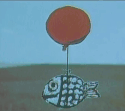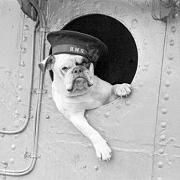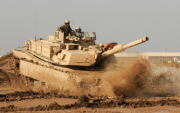|
Cessna posted:Somewhere in another universe Kennedy doesn't get assassinated and doesn't escalate the war in his second term. Why do you think Kennedy wouldn't have escalated the war?
|
|
|
|

|
| # ? Jun 3, 2024 17:39 |
|
There's also just a degree you have the will to fight and how unacceptable defeat is. The French Revolution leads to Great Britain spending 25 years on-and-off at war and assembling seven international coalitions to contain France, the effort of which eventually results in getting to walk away with complete achievement of all war aims and the ushering in 100 years of global superpower status.
|
|
|
|
Polyakov posted:The curious thing about Japan particularly is that I don't think even a majority of the high command thought they would win, or even that they could. They were men constrained by fear and a lack of imagination, they could not back down from the course that the country had taken, not only because it would be unthinkable bit also because they knew they would likely get murdered for it, and nobody was sure of whether everyone else would support peace and so nobody operant enough took a stand. But there was a lot of private doubt and relatively sober assessment of their odds outside of the public eye. But they had spent too much, invested too much moral capital and had too many deaths to realistically be able to climb down. Most of them had no real delusions of actually beating the US in a drawn out fight, they were counting on that Decisive Battle that would cause the US Public to call for a ceasefire that was advantageous to Japan. Of course this plan was thwarted with the way they started their war, both in terms of how it angered the US populace and how it basically crippled one of the main plans the USN had for fighting, though chances are that it wouldn't have happened anyways. They wanted and needed a Short Victorious War.
|
|
|
|
Polyakov posted:The curious thing about Japan particularly is that I don't think even a majority of the high command thought they would win, or even that they could. They were men constrained by fear and a lack of imagination, they could not back down from the course that the country had taken, not only because it would be unthinkable bit also because they knew they would likely get murdered for it, and nobody was sure of whether everyone else would support peace and so nobody operant enough took a stand. But there was a lot of private doubt and relatively sober assessment of their odds outside of the public eye. But they had spent too much, invested too much moral capital and had too many deaths to realistically be able to climb down. Coming off of Eri Hotta it feels like a lot of people also tended to get locked into narrow, short-sighted institutional viewpoints - i.e. "A Pacific War would be good for the navy as we would be allocated more resources in order to prosecute it," or "Withdrawing from Southern French Indochina to satisfy US diplomatic demands would harm the morale of the soldiers and the army's overall fighting spirit and thus is unacceptable." Hotta also notes how Japan's "imperial conference" system did a lot of damage to peace efforts since despite them being pretty much an imperial rubber stamp to approve government decisions, they attained the level of sacred, inviolable writ once the Emperor approved their conclusions. Which means that when a conference in October declared that Japan "must be resolved for war with the US and Britain" (which got inserted pretty much because of dickwaving between the Army and the Navy as opposed to a serious thought-through strategic decision), future ministers would feel that they lacked the backing to overturn officially expressed divine will - even while Hirohito was busy trying to figure out if there was any way to gently convince ministers to work harder for peace without direct imperial intervention. Like you said, it's a particularly weird situation because in retrospect it's kinda clear that almost nobody actually wanted war, they just kinda assumed everyone else did and nobody was willing to take direct responsibility for a climbdown. FMguru posted:There's also been a lot of work about how bureaucratic politics and organizational imperatives drive state decisionmaking. You really can't understand Japan's behavior in 1937-1941 without understanding the way the Army and the Navy clashed over things in ways that made a coherent, "rational" foreign policy impossible, for instance. Yeah, I'm kinda thinking in terms of organizational principles that might be applied in the future based on past lessons. Yes, everyone makes bad decisions sometimes, but are there specific organizational setups that particularly encourage bad decision-making? Similarly, are there any best practices worth adopting to try and avoid common collective decision-making pitfalls? You mention there's been a lot of work on the subject - any specific books you could recommend? Edit: Other than the ones you mentioned already I mean, sorry, I just came off a twelve hour flight. Tomn fucked around with this message at 00:30 on May 11, 2021 |
|
|
|
Epicurius posted:Why do you think Kennedy wouldn't have escalated the war? I am not entirely serious, and will admit up front that this is speculation at best. But maybe he might have handled it better. I do think that Kennedy was a bit more cognizant of the limitations of US power, especially after Bay of Pigs, and was more willing to negotiate with foreign powers. Indeed, Kennedy already had acted more prudently in Laos, which at the time was seen as far more likely to be the place for a showdown than Vietnam.
|
|
|
|
I'll just chime in and say that was a neat discussion about Technowar. Not something I know about myself, but its nice to see a forum thread have an informed and productive discussion about something that leaves everyone more informed than they were before. Glad I found this thread. Speaking of threads, is there a Milhist thread but for current events? I follow some D&D threads on say the Middle East and other shooty kind of places, but I would be very interested in this thread's sort of discussion on more contemporary matters, if such a thing exists.
|
|
|
|
Count Roland posted:Speaking of threads, is there a Milhist thread but for current events? I follow some D&D threads on say the Middle East and other shooty kind of places, but I would be very interested in this thread's sort of discussion on more contemporary matters, if such a thing exists. The Cold War/Airpower thread is pretty much the "modern military poo poo" thread at this point. It still generally leans towards planes, so things like the latest tank design might not generate a ton of discussion, but it's been a while since I've seen anyone called out for going "off topic" in that sense.
|
|
|
|
Biffmotron posted:The short version is that peacetime militaries invest of energy in pomp and pointless order, and the kinds of officers who thrive in peacetime are often minutia focused authoritarians. When they wind up in charge of an actual battle, especially any kind of asymmetric one, they discount their reconnaissance, become confused and indecisive, and order costly frontal attacks because Something Must Be Done, and a frontal attack is Something. For real. It is absolutely bonkers that militaries just assume that the kind of person who is a good tactical commander in combat will also be a good line manager in what's effectively an educational organisation.
|
|
|
|
Is there a really good way to tell who is going to be an effective combat commander without seeing the elephant? I realize this is a critical priority for pretty much every military organization ever so I presume that a lot of work has been done on it.
|
|
|
|
I'm sure other people ITT will have a better / wider and more academic view, but a reasonable criticism of the UK officer training system is it's almost all focused on tactical competence, and essentially light infantry at that, at the cost of more general management skills. Having instructed for several years on fairly lengthy reconnaissance selection courses, while it's true that you don't know exactly how people will react in combat until the range is 2-way, the training does produce soldiers and officers with much better general tactical ability outside the core job. Or, maybe, just selects them.
|
|
|
|
The balance and interaction between selection and creation is very interesting and a particular struggle that I'm working on in my corporate life.
|
|
|
KYOON GRIFFEY JR posted:Is there a really good way to tell who is going to be an effective combat commander without seeing the elephant? I realize this is a critical priority for pretty much every military organization ever so I presume that a lot of work has been done on it.
|
|
|
|
|
knox_harrington posted:I'm sure other people ITT will have a better / wider and more academic view, but a reasonable criticism of the UK officer training system is it's almost all focused on tactical competence, and essentially light infantry at that, at the cost of more general management skills. At entry level it is, but the whole point of the staff courses is to prepare the people who are going to be asked to do more strategic and managerial thinking that leading PT sessions.
|
|
|
|
Alchenar posted:At entry level it is, but the whole point of the staff courses is to prepare the people who are going to be asked to do more strategic and managerial thinking that leading PT sessions. At which point you've selected out some of the people with the best management aptitude. E: there also the issue particularly in less popular arms that it's the dullards who have the staying power, and many of the actually capable cohort get bored and head off to the City. The bottom third rises. knox_harrington fucked around with this message at 11:26 on May 11, 2021 |
|
|
|
KYOON GRIFFEY JR posted:Is there a really good way to tell who is going to be an effective combat commander without seeing the elephant? I realize this is a critical priority for pretty much every military organization ever so I presume that a lot of work has been done on it. Just to throw into the mix - I've been reading 'Four Weeks In May', the (excellent) account of the Falklands War by the commanding officer of HMS Coventry. He says that one of the things that surprised him most in his crew after they'd been on a combat footing for 10 days or so was the number of men who had previously been seen as stalwart, capable, committed naval sailors didn't rise to the challenge as well as he would have expected two weeks previously, and equally how men who he had previously seen as a bit mediocre and listless absolutely shone and shouldered the load brilliantly. He also has a great anecdote of a helicopter flying in to Coventry from one of the support ships, in between Argentinian air attacks and vicious squalls to deliver a spare part for the ship's torpedo decoy noisemaker...only to find that somewhere along the chain the item number had been messed up and what was actually being delivered was a large refrigerator.
|
|
|
|
KYOON GRIFFEY JR posted:Is there a really good way to tell who is going to be an effective combat commander without seeing the elephant? I realize this is a critical priority for pretty much every military organization ever so I presume that a lot of work has been done on it. Very generally speaking, the people who are good leaders back at home are good leaders when deployed. I think people sometimes lose sight of the fact that 95% of what you do as a military leader in the combat zone is the same sorts of stuff you do back in garrison, so it isn't like you're deploying and being asked to do something completely new or foreign. Usually, anyway. That said, for me and I assume for most others, there were some serious surprises -- especially on our first GWOT deployments. A few dirtbags turned into superstars, and a few seemingly competent folks turned into imbeciles once we got in the combat zone. I think it was mainly just the mix of stress and tedium more than any actual danger, although I did have one NCO -- who'd been a recruiting-poster drill sergeant super hooah type -- that very clearly tried to avoid any activity outside the wire. This was very clear to everyone around and probably ended his career. The other mildly interesting thing is how it affected careers when we got back. A couple of people that were bonafide idiots became useful long-term soldiers (one just pinned LTC), and several presumptive careerists started exploring other careers. I think THAT was the thing that really caught the DoD off-guard a bit -- the GWOT OPTEMPO really cost them a lot of capable people who might've stayed in longer had they not had so many drat deployments in such a short window.
|
|
|
|
Taerkar posted:Most of them had no real delusions of actually beating the US in a drawn out fight, they were counting on that Decisive Battle that would cause the US Public to call for a ceasefire that was advantageous to Japan. Of course this plan was thwarted with the way they started their war, both in terms of how it angered the US populace and how it basically crippled one of the main plans the USN had for fighting, though chances are that it wouldn't have happened anyways. The same was true with China. They were under the delusion that Chiang would fold soon after they took Nanjing.
|
|
|
|
RocknRollaAyatollah posted:The same was true with China. They were under the delusion that Chiang would fold soon after they took Nanjing. Chiang wouldn't fold even after driven from the mainland by communists.
|
|
|
|
KYOON GRIFFEY JR posted:Is there a really good way to tell who is going to be an effective combat commander without seeing the elephant? I realize this is a critical priority for pretty much every military organization ever so I presume that a lot of work has been done on it. In garrison your combat units are spending most their time training for and simulating combat. Additionally if you’re organization adheres to a particular style of leadership or command philosophy, let’s say small unit leadership / decentralized leadership, you can observe that in a garrison environment or in administrative / support actions.
|
|
|
|
Alchenar posted:There's also just a degree you have the will to fight and how unacceptable defeat is. Their willingness to fight to the last Prussian was certainly something.
|
|
|
|
Polyakov posted:Edit: It's kind of like when you read the history of any mass uprising plan that includes the precondition "and then the people will rise up to support us", because almost invariably they don't and the uprising ends badly for all involved. Has this ever worked?
|
|
|
|
When you've put the work in to get the people on side and on board, yes. But there's plenty more times when a few hundred idealistic radicals convince themself it isn't needes and the people will intrinsically know what to do.
|
|
|
|
|
Tomn posted:Yeah, I'm kinda thinking in terms of organizational principles that might be applied in the future based on past lessons. Yes, everyone makes bad decisions sometimes, but are there specific organizational setups that particularly encourage bad decision-making? Similarly, are there any best practices worth adopting to try and avoid common collective decision-making pitfalls? This sounds much more like a sociology of organizations question than a military history one (tbf these are not unrelated questions - military orgs tend to reflect and learn from civilian orgs from the same society, and vice versa). I will say there is absolutely not a consensus on how best to achieve this, because 'good decision-making' is really a very abstract output when the inputs are stuff like "how specialized are tasks" and "what happens when people fail at tasks." For what you're asking there is one piece of consensus that I have encountered - the more sway a country's military has over strategic decision making, the more tolerance that country develops for risky military adventures (including doomed ones). The biggest problem is that it's very common for an org to identify a major pitfall, such as "lack of accountability," and attempt to fix it with a new type of problem such as "excessive logging" or "easily gamed metrics." There's about a million ways this happens - a common one is "people are covering up mistakes" tends to get approached with "punish people for covering up more" which tends to lead to 1) more elaborate coverups and 2) reduced initiative. The funniest recent one is the hedge fund Bridgewater was concerned about insufficient trust between workers and then made a goddamn cult. To the best of my knowledge there is no formal method for preventing an org from engaging the bureaucratic version of 'there was an old lady who swallowed a horse.' It's generally understood that the winning formula for an org is to have strong buy-in from all levels and a system that encourages people toward actions that effectively advance the goals that are set at the strategic level (there's a non-trivial argument that the biggest problem with the Imperial Japanese system was that the military branches did not operate with the best interests of the whole government's strategy as a priority, instead favoring their own form of jockeying). And for every identified best-practice there's a corresponding pitfall associated with that practice - Taylorism has every task broken down into small, mechanical subtasks as far as possible so that the job is as predictable and easily trained as possible (to my knowledge this is also something of a description of musket-era infantry theory), but doing so is inflexible and stifles initiative & innovation. A consistent series of rewards and punishments has been identified at least as early as Sunzi as important for discipline and morale, but without being alloyed with some specificity for extenuating or changing circumstances you can spiral into a Qin dynasty situation. Profit sharing is a classic method for getting workers to identify the best outcome at the high level with the best outcome for themselves - and was really pioneered by militaries where it is known as "looting and pillaging."
|
|
|
|
I watched a quick 10 minute Youtube video on the development of the Sidewinder, and one thing that stood out to me was the competition between the two Navy munitions bureaus who were working on guided A2A. The video says BuOrd did stuff in house while BuAer outsourced to contractors. When they staged a shoot off between the AIM-4 and AIM-9, the video talks about how the Falcon contractors showed up with boxes and boxes of test equipment and technicians, and the Sidewinder guys just showed up with a flashlight to check the gyros, and of course the Sidewinder rinsed the Falcon. I get that it makes it a good story, but it also echoes my understanding of more modern military procurement - 3rd party contractors building way over budget to sponge as much DoD money as they can. I don't know the history of contractors building weapons and platforms for state militaries, is this a fair early example of modern contracting boondoggles, or was it another in a line of them? How much stuff is still developed within military branches vs. defense contractors?
|
|
|
|
Nothingtoseehere posted:When you've put the work in to get the people on side and on board, yes. But there's plenty more times when a few hundred idealistic radicals convince themself it isn't needes and the people will intrinsically know what to do. Do you have any examples? I've only heard about it failing.
|
|
|
|
Tulip posted:The biggest problem is that it's very common for an org to identify a major pitfall, such as "lack of accountability," and attempt to fix it with a new type of problem such as "excessive logging" or "easily gamed metrics." I was hopping on to come talk about this. There was an interesting post earlier comparing the military nominally to an educational system (though I'd add with a very specific vocational focus). Beyond the 'good leaders at garrison are usually good leaders in the field' that was probably true for western militaries in the 00s, there is a concern that permits or even promotes suboptimal garrison operations. You don't want the people shifting positions and have skilled but inexperienced instructors unable to recognize or communicate how things are different than 'the real things. This means you're more willing to accept an unskilled instructor with weak learning outcomes because they'll be able to better motivate the student since they'll see training as a matter of life and death. It also means you can't get too far afield without your trainers at least injecting some of a more accurate world view, even if it's as grumbling snark complaining about the inaccurate training material. Training well for the wrong war is also one of those consistent historical blunders to be avoided. Edit: zoux posted:I don't know the history of contractors building weapons and platforms for state militaries, is this a fair early example of modern contracting boondoggles, or was it another in a line of them? How much stuff is still developed within military branches vs. defense contractors? None, or at least not what would have been thought of as 'within' by pre Goldwater-Nichols standards. This paper includes some historical context for how GWN came about and its effects on procurement through the 90s and 00s. piL fucked around with this message at 16:45 on May 11, 2021 |
|
|
|
FastestGunAlive posted:In garrison your combat units are spending most their time training for and simulating combat. Additionally if you’re organization adheres to a particular style of leadership or command philosophy, let’s say small unit leadership / decentralized leadership, you can observe that in a garrison environment or in administrative / support actions. You misspelled “sitting on motor pool watching tanks rust into nonbeing as a tangible example of entropy” when talking about what combat units do in garrison. GWOT did a number on the heavy units.
|
|
|
|
BalloonFish posted:..only to find that somewhere along the chain the item number had been messed up and what was actually being delivered was a large refrigerator. poo poo like that always reminds me of the guy who ordered a light bulb and got 7-ton anchor https://apnews.com/article/109da053cbc45f6c2d3d28647e6e5416
|
|
|
|
Valtonen posted:You misspelled “sitting on motor pool watching tanks rust into nonbeing as a tangible example of entropy” when talking about what combat units do in garrison. See this bucket of rusty bolts? Here's a wire brush. Now scrub the rust off of the bolts. Continue to do this for your entire enlistment.
|
|
|
|
Surely it would be better to just drive the tanks into the ground, since Congress will buy new tanks from that factory either way?
|
|
|
|
Valtonen posted:You misspelled “sitting on motor pool watching tanks rust into nonbeing as a tangible example of entropy” when talking about what combat units do in garrison. Garrison units are fighting every day. Some days they are fighting the local population in bars. Some days they are fighting the MPs. Some days they are fighting those disciplinary charges. Some days they are fighting among themselves. Some days they are fighting their impulse to tell all of command to go gently caress themselves with well abused wirebrush. Most days they are fighting to stay awake through a powerpoint lecture.
|
|
|
|
Big Dick Cheney posted:Do you have any examples? I've only heard about it failing. The French Revolutions of 1830 and 1848 basically managed to pull it off, although it was really more focused in Paris. Technically the 1905 Russian Revolution as well, although that didn't engineer long-lasting change. A lot of attempts at least manage to appear hugely successful for a while at first before the authorities gather their forces to crush the dissenters. Also depending on definitions, "the people rise up to join us" could also be used to mean "it becomes easier to find recruits after starting the uprising so you can bolster your forces" which is a much more measured perspective and can be used to include things like the American Revolution and the Mexican Revolution, which were fought more by normal armies. I think there's a whole thing where mass uprisings throughout the population tend to be more spontaneous instead of being the result of planning.
|
|
|
|
BalloonFish posted:He also has a great anecdote of a helicopter flying in to Coventry from one of the support ships, in between Argentinian air attacks and vicious squalls to deliver a spare part for the ship's torpedo decoy noisemaker...only to find that somewhere along the chain the item number had been messed up and what was actually being delivered was a large refrigerator. Someone told me he invaded Iraq in 2003 as an infanteer with seven (7) live rounds because his battalion QM had gone onto autopilot and ordered blank ammunition. I can't quite bring myself to believe it but it's a nice story.
|
|
|
|
the technowar chat was really interesting
|
|
|
|
Valtonen posted:You misspelled “sitting on motor pool watching tanks rust into nonbeing as a tangible example of entropy” when talking about what combat units do in garrison. Fortunately we solved that by just getting rid of tanks here in the marines. No way it comes back to bite us in the rear end.
|
|
|
|
I just do not understand how anyone thought that was a good idea.
|
|
|
|
I consider myself mostly a believer in the new concept the commandant is pushing - except for the part where we got rid of tanks, reduced the number of tube artillery, and got rid of bridging companies.
|
|
|
|
Skimming that procurement document listed earlier, it seems that the Goldwater/Nichols bill was predicated on extreme congressional dissatisfaction over interservice rivalries getting in the way of military readiness in the face of the GODLESS COMMIES, has there ever been serious talk about combining the branches? What advantages does a five - well six now I guess - branch armed service have over a singularly integrated one? Are there now or have there been major military powers where navy/army (later air) have been under unified command?
|
|
|
|
zoux posted:Skimming that procurement document listed earlier, it seems that the Goldwater/Nichols bill was predicated on extreme congressional dissatisfaction over interservice rivalries getting in the way of military readiness in the face of the GODLESS COMMIES, has there ever been serious talk about combining the branches? Yes, Truman was a proponent of combining the services even more than they were when he signed the Armed Services Unification Act of 1947, but (tl;dr) politics and the armed services themselves didn't favor this, so it was dropped. zoux posted:What advantages does a five - well six now I guess - branch armed service have over a singularly integrated one? Are there now or have there been major military powers where navy/army (later air) have been under unified command? That's more of a question of definitions. I could make a case that the US Armed Forces are all under the Department of Defense, just as the UK has the MOD, etc.
|
|
|
|

|
| # ? Jun 3, 2024 17:39 |
|
zoux posted:Skimming that procurement document listed earlier, it seems that the Goldwater/Nichols bill was predicated on extreme congressional dissatisfaction over interservice rivalries getting in the way of military readiness in the face of the GODLESS COMMIES, has there ever been serious talk about combining the branches? What advantages does a five - well six now I guess - branch armed service have over a singularly integrated one? Are there now or have there been major military powers where navy/army (later air) have been under unified command? The USSR had a joint Army-Navy People's Commissariat 1923-1934, then it was reformed into the Commissariat of Defense and the Commissariat of the Navy was extracted in 1937 and reabsorbed in 1946.
|
|
|





































 Yes, it's like a lava lamp.
Yes, it's like a lava lamp.




